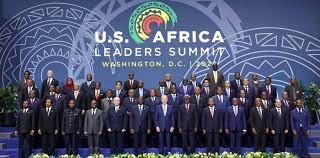Africa’s Rising Prominence in New Global Order (2-2)

China is another factor to consider in this regard, for Beijing has been the largest trading partner of African countries in recent years and this makes them favoured options to African leaders seeking new economic relations.
Additionally, African governments like Burundi, Ethiopia and Niger now benefit from a 98% drop on export tariffs to China as part of broader efforts by Beijing to increase imports from Africa.
Tanzania and Uganda also started benefiting from duty-free exports of some products to China. With a policy covering over 8,800 items, China is seeking to boost African imports to $300 billion by 2025.
The point to note is that while powerful nations like the US and China seek deeper influence among African governments, countries on the continent have a newfound flexibility in partnership choices, especially when considering the economic benefits available in Africa-China relations.
From debt-relief plans to duty-free exports, African governments are in a position to influence the great power rivalry and the potential to shift global attitudes around the subject of unipolarity, multipolarity or non-alignment.
The maritime front is another realm where Africa demonstrates the potential to influence the global order.
Considering key shipping lanes like the Suez Canal near Egypt and the Bad-el Mandeb Strait by the Horn of Africa that service Europe and Asia with oil and natural gas, African countries have moved to improve capacity to face the collective threats of piracy while exercising the autonomy to address external interests.
Furthermore, the natural resources around areas like the Gulf of Guinea and the Horn of Africa also have many countries scrambling for fish, and energy sources like natural gas.
In this context, enhanced continental coordination can allow Africa’s maritime resource to bring sustainable benefits across the continent.
The Yaounde Code of Conduct (YCoC), for instance, was signed by 25 states in 2013 for increased cooperation in information sharing, interdiction and investigation – all to confront maritime security threats like piracy, smuggling, illegal fishing and pollution.
This sort of cooperation, while being lauded, has not had the desired result because, according to Chatham House reporting, 130 of the 135 maritime kidnappings recorded worldwide happened in the Gulf of Guinea.
More importantly, as African governments have begun implementing blue economy development strategies, they may come in competition with other powers whereby geopolitical dynamics can influence maritime international relations.
In conclusion, the current geopolitical developments, as mentioned through this piece, suggest that the world is moving away from a US-led unipolar global order towards a multipolar configuration where countries of Asia, South America and Africa gain more influence in global matters.
This has brought forth new possibilities for Africa as various governments within the continent play new roles in global politics such as influencing power dynamics around access to strategic minerals and other such resources.
Seeking greater representation in the G20 and the United Nations Security Council, also means Africa is moving from a position of a mere observer to a serious actor on the international stage.



